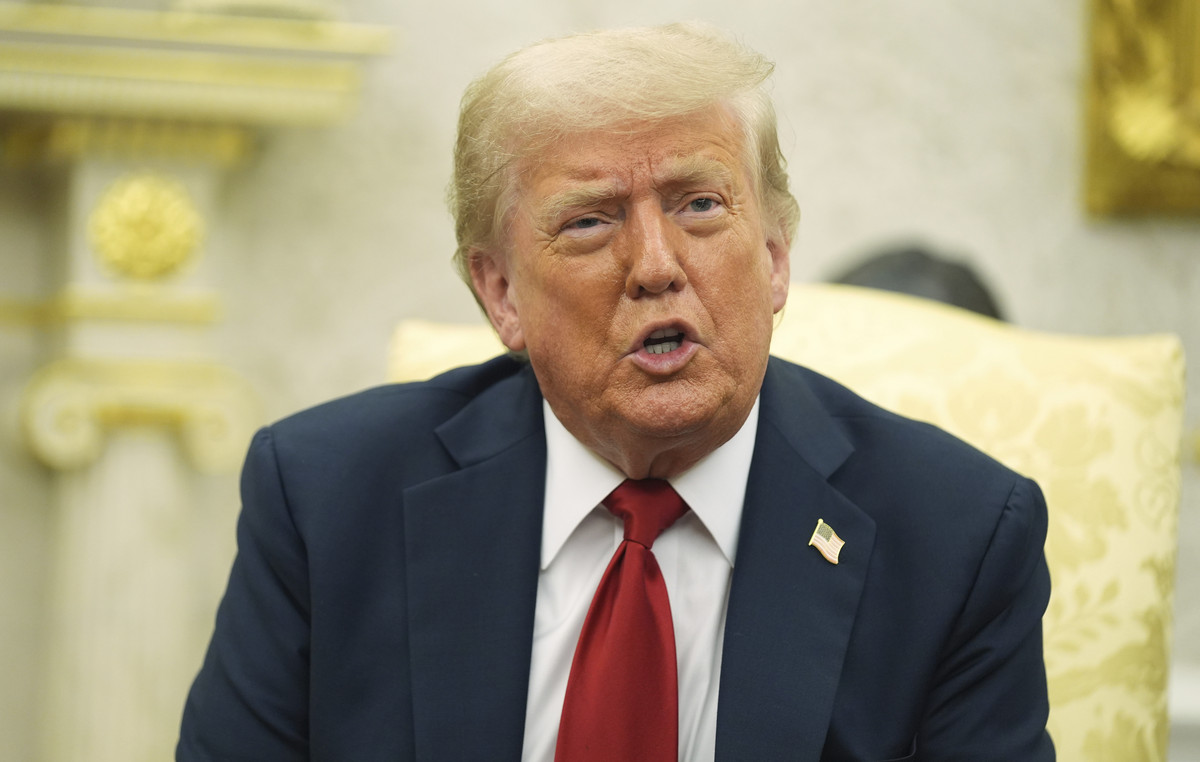Unlike Brazil, voting is not mandatory in the United States, but optional. In other words, it is up to citizens to decide on election day whether they will vote or not – without the imposition of fines or the need to present a justification if they do not appear at the polls.
Therefore, the candidates’ task is, in addition to convincing the population of their proposals, to engage people and try to make them want to vote.
The US Constitution provides voting as a right and not a commitment – “the right of citizens of the United States to vote shall not be denied”.
The first vote, in 1789, was limited only to white men and property owners, he explained to CNN Louis Caldera, former Secretary of the US Army (from 1998 to 2001, under President Bill Clinton) and professor of Law at American University, in Washington.
Over the years, some amendments were approved, such as those that expanded the right to vote to non-landowners, black people and women, but none of them made citizens obliged to participate in local, state or even presidential votes.
Currently, to vote in any election in the country, you must be a North American citizen, meet the requirements of the state in which you live, be at least 18 years old and be registered to vote.
Those who are not US citizens, even if they have permanent residence in the country, convicted or ex-convicted felons (in certain states), mentally incapacitated people (in some states) do not have the right to vote.
Participation in elections
In 2015, then US President Barack Obama declared that perhaps it was time to make voting mandatory in the country.
“Other countries have mandatory voting,” he said during a speech in Cleveland, Ohio, when asked about the issue. “It would be transformative if everyone voted,” he said.
“The people who tend not to vote are young, low-income people. They are more biased towards immigrants and minority groups. There is a reason why some try to keep them out of elections,” Obama declared.
According to data from the US Census Department, even without the obligation, and despite the Covid-19 pandemic, the 2020 elections – marked by the dispute between Joe Biden and Donald Trump – had the highest voter turnout of the century in the country.
It was also the largest increase in voters ever recorded between two American elections. Around 240 million people were eligible to vote that year, and around 66.1% voted – totaling 158,427,986 votes.
This number was more than 17 million more people than in 2016, when 61.4% of North Americans eligible to vote participated in the 2016 elections, which corresponded to 137.5 million people.

In 2012, the number was similar: 61.8%, but both were well below the 63.6% in 2008, when Obama ran against John McCain.
Since the 1980s, average participation in US presidential elections has remained in this range. In 1992, in the dispute between Democrat Bill Clinton and Republican George HW Bush, there was a peak of 67.7% of voters.
The next vote, in 1996 (Bill Clinton vs. Bob Dole), however, recorded the lowest turnout to date: 58.4%.
The population is not very in favor of mandatory
But what may seem strange to Brazilians is more than normal for North Americans, who are not very in favor of changing existing legislation.
According to a 2018 survey by the Pew Research Center, 79% of US citizens are in favor of non-compulsory voting and argue that the decision to go to the polls should be up to them. Only 21% of the population supports mandatory voting.
Author of the book “Compulsory voting: for and against”, professor Jason Brennan, from Georgetown University, a specialist in voting rights and social sciences, says that forcing citizens to voting “is a bad idea”.
“Governments shouldn’t force people to do things unless they have a clear public interest,” he said.
“Research does not show any clear benefit of mandatory voting, other than increasing participation,” Brennan highlighted, adding that this is not enough to change the country’s legislation.
He defends other options to resolve this issue.
“For example, we could make voting easier. We could pay people to go vote. We could give people paid time off and make Election Day a holiday. We could select 20 thousand people and only they would vote”, he listed.
For Brennan, these formats would be more representative than the current one.

“The typical citizen who does not vote is less informed and less interested in politics than the typical voter,” said the professor. “Compulsory voting is like asking drunk people to vote.”
Party orientation
According to the Pew Research Center, Republicans are very divided on whether to change existing legislation and make voting easier; most of them believe that any change in this regard would make elections less secure.
Unlike them, Democrats defend facilitating the voting process and do not believe that this would harm the security of the election.
Louis Caldera explains that Democrats tend to want to expand voting privileges as they have a larger share of supporters, mainly low-income citizens and ethnic and racial minorities.
The Republicans, on the other hand, have an older, richer and whiter base, and use certain arguments to block this idea, such as the possibility of electoral fraud, voters who “don’t care enough” to participate should not vote, and the precepts of individualism and freedom provide that no one should be forced to vote.
Given this scenario, “no progress is made in obtaining the votes necessary to approve the laws or constitutional amendments necessary to reform many voting laws”, such as mandatory voting, explained the former secretary.
Regarding the ease of voting in the USA, it is worth mentioning that registering to participate in the election can be done online in 40 states, out of the 50 in the country.
Furthermore, in 2020, 35 of them required the presentation of some type of document when voting.
This content was originally published in US Elections: find out why voting is not mandatory and who can vote on the CNN Brasil website.
Source: CNN Brasil
Bruce Belcher is a seasoned author with over 5 years of experience in world news. He writes for online news websites and provides in-depth analysis on the world stock market. Bruce is known for his insightful perspectives and commitment to keeping the public informed.







